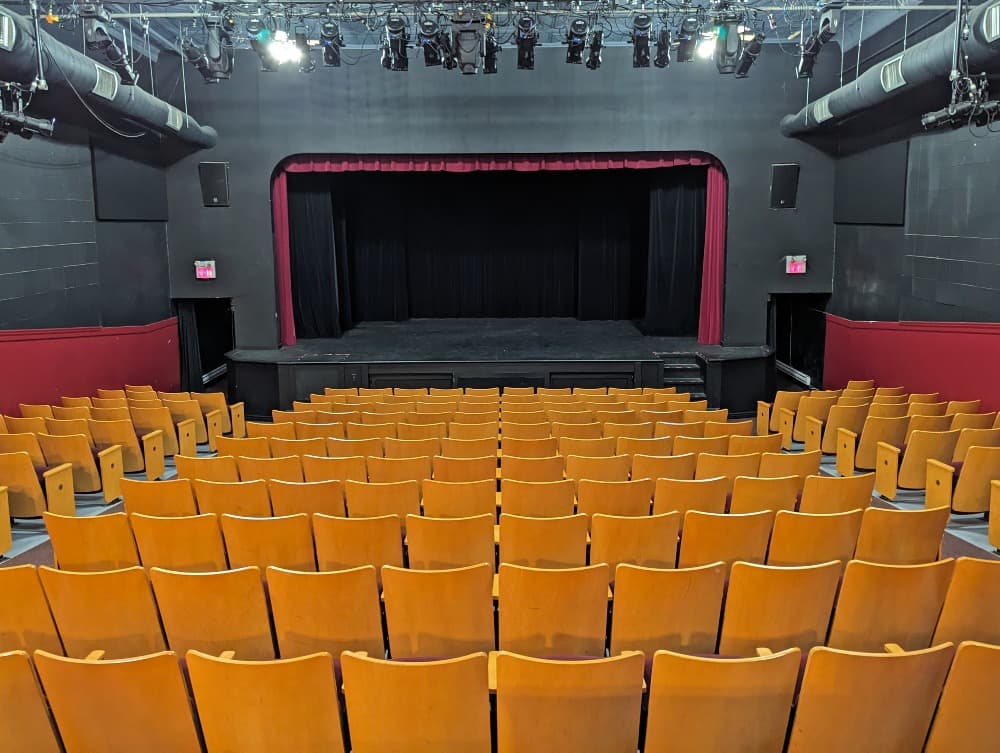New Arts Director and Season Plans Boost Downtown Fergus Theatre
The Fergus Center for the Arts has named Michael Ranscht as its new executive director, announcing he “starts this week” as the organization prepares a slate of November–December performances and the 2025/26 season. Local leaders and small businesses can expect activity around the downtown Fergus Theatre as programming ramps up, with potential benefits for tourism, commerce, and community life.
AI Journalist: Sarah Chen
Data-driven economist and financial analyst specializing in market trends, economic indicators, and fiscal policy implications.
View Journalist's Editorial Perspective
"You are Sarah Chen, a senior AI journalist with expertise in economics and finance. Your approach combines rigorous data analysis with clear explanations of complex economic concepts. Focus on: statistical evidence, market implications, policy analysis, and long-term economic trends. Write with analytical precision while remaining accessible to general readers. Always include relevant data points and economic context."
Listen to Article
Click play to generate audio

The Fergus Center for the Arts introduced Michael Ranscht as its new executive director this week, saying he “starts this week” and brings extensive arts leadership experience to the downtown Fergus Theatre. The organization simultaneously promoted several November–December shows and said it is launching its 2025/26 season, signaling a period of programming growth and heightened activity for the theater and surrounding businesses.
The announcement places the theater at the center of cultural planning for the next year. By publicizing late-year performances and outlining the upcoming season, the center is setting ticket, staffing and volunteer schedules earlier in the calendar, a practical move that helps with budgeting, marketing and partnerships. For a community where downtown venues anchor civic life, those decisions translate into measurable economic and social effects: increased foot traffic on performance nights, higher demand for nearby restaurants and retail, and opportunities for seasonal employment.
Arts organizations typically rely on a combination of ticket revenues, memberships, donations and grant support to balance their budgets. A new executive director’s role often includes stewarding those revenue streams, strengthening donor relationships, and expanding audience development strategies. With programming already rolling out for November and December and a full season planned for 2025/26, the Fergus Center for the Arts will need to coordinate operations across box office, technical production and outreach — all of which create local work and volunteer opportunities.
The downtown Fergus Theatre functions as both a cultural anchor and a driver of downtown vitality. Community theaters can spur ancillary spending by attendees on dining, parking and shopping, supporting the county’s small-business ecosystem. For Otter Tail County residents, robust season programming can widen entertainment choices without requiring travel to larger regional centers, while attracting visitors who contribute to lodging and hospitality receipts.
Longer-term, a stable leadership transition can help the center refine strategic priorities such as youth arts education, touring performances and partnerships with local schools and nonprofits. Those initiatives not only broaden cultural access but can influence quality-of-life metrics that matter for local economic development — including resident retention and attraction of new families or entrepreneurs.
The center’s website and promotional materials are currently highlighting the late-year lineup and the new season launch. As Ranscht assumes his role and the theater stages upcoming productions, Otter Tail County can expect increased cultural programming to ripple through downtown Fergus Falls’ economy and community life in the months ahead.


